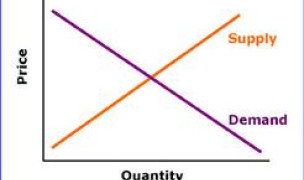 27 Terms
27 TermsHome > Terms > English (EN) > philosophy
philosophy
Philosophy in American academia went through two phases after the Second World War.
The first was influenced and shaped by the ideas of the Vienna Circle and a small collection of thinkers from Oxford and Cambridge and lasted from the 1940s to the mid-1960s. Although there were notable exceptions, this approach, loosely known as analytic philosophy dominated academic philosophy and largely displaced previously influential systems such as Neo-Hegelianism, transcendentalism and pragmatism. Analytic philosophers focused on areas that had achieved prominence in the first part of the century: symbolic logic, philosophy of science, philosophy of mind and language analysis. There was a marked skepticism about ethics and political theory and an increasing disconnection between academic philosophers and mainstream society.
The second phase, which had no single dominant system, arose partly because of dissatisfaction with the analytic movement, both from analytical philosophers themselves and from those who felt that it did not adequately address a number of important social issues. From within the movement, writers like W.V.O. Quine (“Two Dogmas of Empiricism”), Edmund Gettier (“Is Justified True Belief Knowledge?”) and Thomas Kuhn (The Structure of Scientific Revolutions, 1962) all challenged fundamental tenets of the analytic approach. Kuhn’s work, moreover, had profound impact outside colleges and universities, introducing the notion of a paradigm into popular culture.
Concurrently the Civil Rights movement, the women’s movement, debate over Vietnam, environmental activism and advances in medical technology were only a few of the social forces that an increasing number of philosophers felt were being inadequately addressed. The desire to grapple with these, coupled with the publication of John Rawls’ influential A Theory of Justice (1971), led to a resurgence of interest in social political philosophy and ethics. Ethics, in turn, further branched into a series of sub-specialties: medical ethics, business ethics, environmental ethics, engineering ethics and legal ethics—each of which gave rise to its own association, conferences and journals. Far from being disengaged from everyday concerns, many of these applied ethicists became consultants to governments, hospitals and businesses, and developed influential think tanks and centers throughout the country (e.g. the Hastings Center).
In addition to these reactions against the analytic approach, at least three other trends emerged: contemporary continental philosophy feminism and pragmatism. The first came about in the 1960s as the work of existentialists like Jean Paul Sartre, Simone De Beauvoir and Albert Camus reignited interest in non-Anglo European philosophy This continued into the 1970s and 1980s with the growing popularity of deconstructionism, and other variations of postmodernism by authors like Michel Foucault and Jacques Derrida. As the number of women in the field grew, feminism became increasingly influential, although academic philosophy remained heavily dominated by white males.
Feminist texts, articles and conferences on everything from science and logic to business and politics became increasingly common. Finally, pragmatism, due in large part to the work of Richard Rorty (Philosophy and the Mirror of Nature), was revived and ceased being exclusively the province of historians.
- Part of Speech: noun
- Synonym(s):
- Blossary:
- Industry/Domain: Culture
- Category: American culture
- Company: Routledge
- Product:
- Acronym-Abbreviation:
Other Languages:
Member comments
Terms in the News
Billy Morgan
Sports; Snowboarding
The British snowboarder Billy Morgan has landed the sport’s first ever 1800 quadruple cork. The rider, who represented Great Britain in the 2014 Winter Olympics in Sochi, was in Livigno, Italy, when he achieved the man-oeuvre. It involves flipping four times, while body also spins with five complete rotations on a sideways or downward-facing axis. The trick ...
Marzieh Afkham
Broadcasting & receiving; News
Marzieh Afkham, who is the country’s first foreign ministry spokeswoman, will head a mission in east Asia, the state news agency reported. It is not clear to which country she will be posted as her appointment has yet to be announced officially. Afkham will only be the second female ambassador Iran has had. Under the last shah’s rule, Mehrangiz Dolatshahi, a ...
Weekly Packet
Language; Online services; Slang; Internet
Weekly Packet or "Paquete Semanal" as it is known in Cuba is a term used by Cubans to describe the information that is gathered from the internet outside of Cuba and saved onto hard drives to be transported into Cuba itself. Weekly Packets are then sold to Cuban's without internet access, allowing them to obtain information just days - and sometimes hours - after it ...
Asian Infrastructure Investment Bank (AIIB)
Banking; Investment banking
The Asian Infrastructure Investment Bank (AIIB) is an international financial institution established to address the need in Asia for infrastructure development. According to the Asian Development Bank, Asia needs $800 billion each year for roads, ports, power plants or other infrastructure projects before 2020. Originally proposed by China in 2013, a signing ...
Spartan
Online services; Internet
Spartan is the codename given to the new Microsoft Windows 10 browser that will replace Microsoft Windows Internet Explorer. The new browser will be built from the ground up and disregard any code from the IE platform. It has a new rendering engine that is built to be compatible with how the web is written today. The name Spartan is named after the ...
Featured Terms
Contributor
Featured blossaries
Browers Terms By Category
- Authors(2488)
- Sportspeople(853)
- Politicians(816)
- Comedians(274)
- Personalities(267)
- Popes(204)
People(6223) Terms
- Cooking(3691)
- Fish, poultry, & meat(288)
- Spices(36)
Culinary arts(4015) Terms
- Muscular(158)
- Brain(145)
- Human body(144)
- Developmental anatomy(72)
- Nervous system(57)
- Arteries(53)
Anatomy(873) Terms
- General law(5868)
- Courts(823)
- Patent & trademark(449)
- DNA forensics(434)
- Family law(220)
- Legal aid (criminal)(82)
Legal services(8095) Terms
- Contracts(640)
- Home improvement(270)
- Mortgage(171)
- Residential(37)
- Corporate(35)
- Commercial(31)





